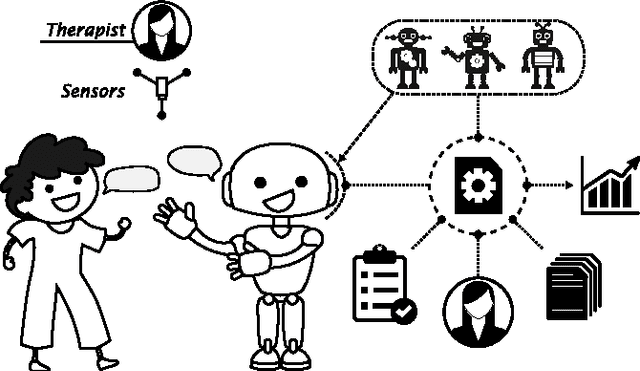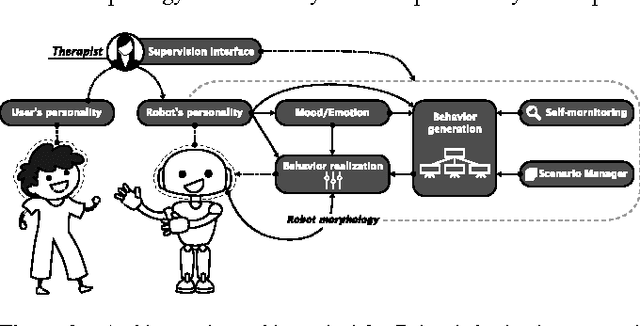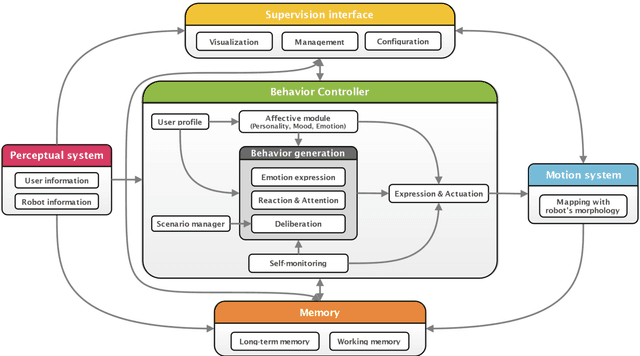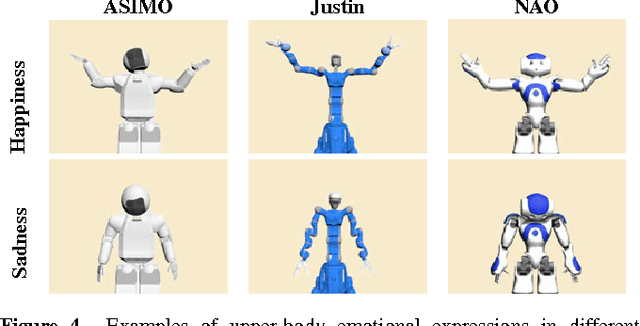A platform-independent robot control architecture for multiple therapeutic scenarios
Paper and Code
Jul 18, 2016



While social robots are developed to provide assistance to users through social interactions, their behaviors are dominantly pre-programmed and remote-controlled. Despite the numerous robot control architectures being developed, very few offer reutilization opportunities in various therapeutic contexts. To bridge this gap, we propose a robot control architecture to be applied in different scenarios taking into account requirements from both therapeutic and robotic perspectives. As robot behaviors are kept at an abstract level and afterward mapped with the robot's morphology, the proposed architecture accommodates its applicability to a variety of social robot platforms.
* 5th International Symposium on New Frontiers in Human-Robot
Interaction 2016 (arXiv:1602.05456)
 Add to Chrome
Add to Chrome Add to Firefox
Add to Firefox Add to Edge
Add to Edge